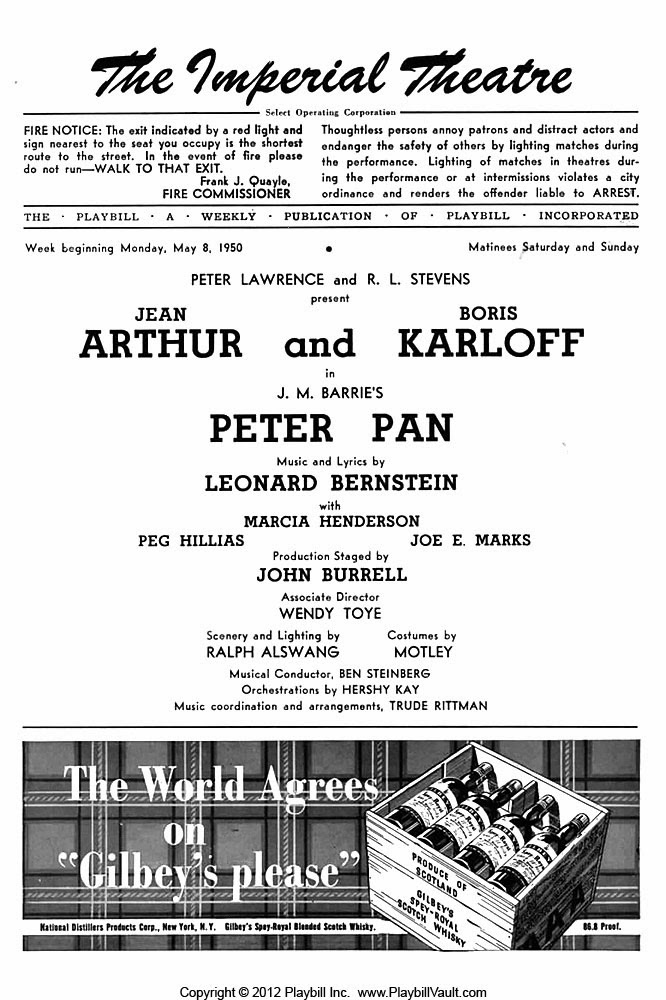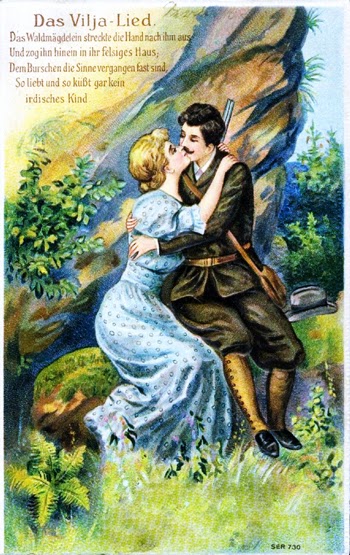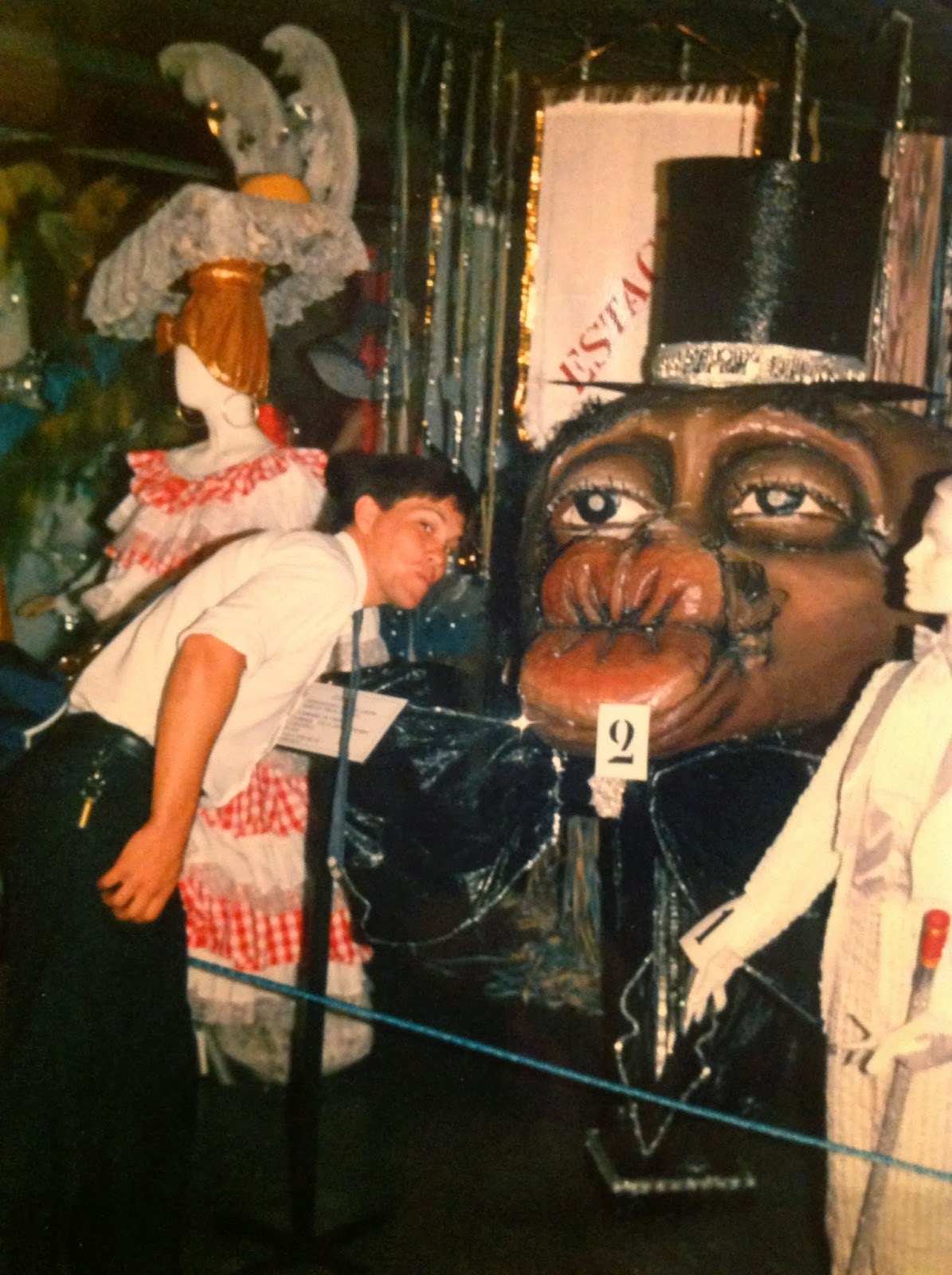I first heard this song on Christopher Parkening's CD with Kathleen Battle. The melody and rhythmic accompaniment revolves around 5/4 meter and sounds mysterious, mesmerizing and cyclical. The lyrics fit the sound beautifully, but Heitor Villa-Lobos didn't write it with words in mind. I've read that fellow top musician and Brazilian, Bidu Sayo, convinced him he had written an aria, not a clarinet solo and proved it by singing him the melody.
I love the non-lyrics part: the beginning is vocalized on an "ah" and the end is hummed. I didn't understand the Portuguese and didn't like Battle's audible breathing or her singing. At some point I found the music at a music store and searched out other singers. This is before the period of internet searches. With my membership with BMG music, I used to buy loads of CDs and on one of the catalogs, Bidu Sayao's CDs were featured.
I consider her pronunciation the epitome to copy, since she convinced Villa-Lobos to add the lyrics. Pictured above is my husband while he lived in Brazil. I've always wanted to sing this song so he could hear Portuguese. When I would ask him for help with the pronunciation, he could never give a simple answer. "It depends on where you come from." Even after he listened to Bidu, he still said the same thing. He did give me two pointers: the single "o" is an /oo/ sound; and words that begin with "r" are pronounced as an /h/ sound. Some "r"s in the middle of a word are also /h/ sounds, like "terra." However, the "r"s at the end of a syllable seem to flip, like "tarde." The "ch" of "chora" is /sh/. In "sonhadora" the "nh" is a /ny/ sound.
I listened to the recording for the different "jeh" endings of words that end in "e" and the different "s" sounds, some being a /sh/ sound.
I found one other Brazilian classical singer on YouTube that I reference, but I find all the others sneak in Spanish sounds. This song sounds best sung with a classical style, especially as Bidu was the inspiration. Bidu was known as "The Bird" in the opera world. John Duke even composed a song for her with that title. I devoured the CD jacket about her - remember when CDs came with informative booklets? Bidu said her French vocal coach emphasized always singing light. That admonition translates to me as: don't thicken vocal cords and don't push.
The long phrases in this song are KILLER! I favor Anna Moffo's breathing placement. She has a consistent sound, her humming is beautiful and her phrasing works. Even Bidu breathed a lot in the humming section and her last hummed high A is on the verge of shaky. Renee Fleming has two different versions of the hummed section. There are actually two different approaches on what to hum, some of the notes either get picked up by the cello or is sung. But Renee hums a new melody which is refreshing when you know the piece well. As for the second phrase of the vocalized first section, Renee sings in one breath what everyone else does in three or four breaths. I've listened repeatedly to try and catch the breath sound and can not find it. I don't know how she does it. When I hear Renee's voice and ability on that section, all I can think is: unbelievable.
These are the lyrics by Ruth V. Correa and English version by Harvey Officer as printed in the Associated Music Publishers.
Tarde, uma nuvem rosea lenta e transparente,
sobre o espaco sonhadora e bela!
Surge no infinito a lua docemente,
Enfeitando a darde, qual meiga donzela
que se a presta e a linda sonhadoramente,
Em anseios d'alma para ficar bela,
Grita ao ceo e a terra, toda a Natureza!
Cala a passarada aos seus tristes queixumes,
E reflete o mar toda a sua riqueza
Suave a luz da lua desperta agora,
A cruel saudade que ri e chora!
Tarde uma nuvem rosen lenta e transparente.
Sobre o espaco sonhadora e bela!
Lo, at midnight clouds are slowly passing, rosy and lustrous,
o'er the spacious heav'n with loveliness laden.
From the boundless deep the moon arises wondrous,
glorifying the evening like a beauteous maiden.
Now she adorns herself in half unconscious duty,
eager, anxious that we recognize her beauty,
while sky and earth, yea, all nature with applause salute her.
All the birds have ceased their sad and mournful complaining;
now appears on the sea in a silver reflection
moonlight softly waking the soul and constraining hearts
to cruel tears and bitter dejection.
Lo, at midnight clouds are slowly passing rosy and lustrous
o'er the spacious heavens dreamily wondrous.
For the full concert program,
click here.





























